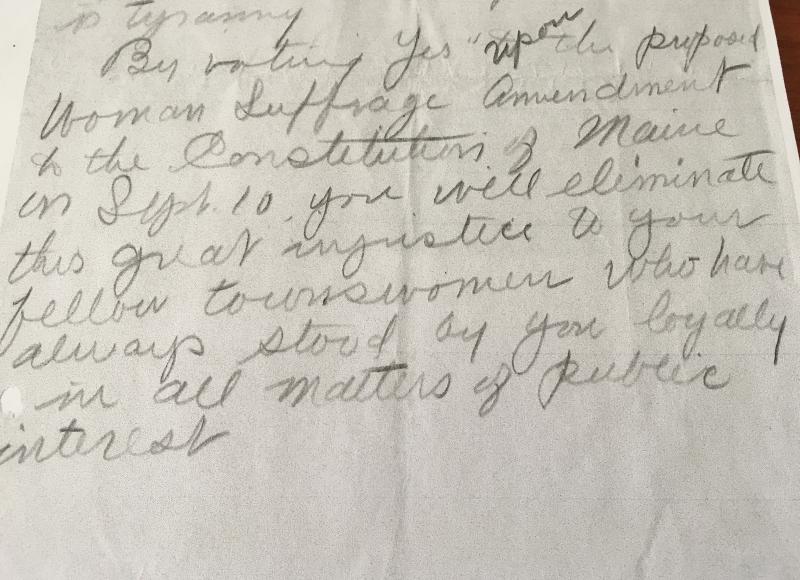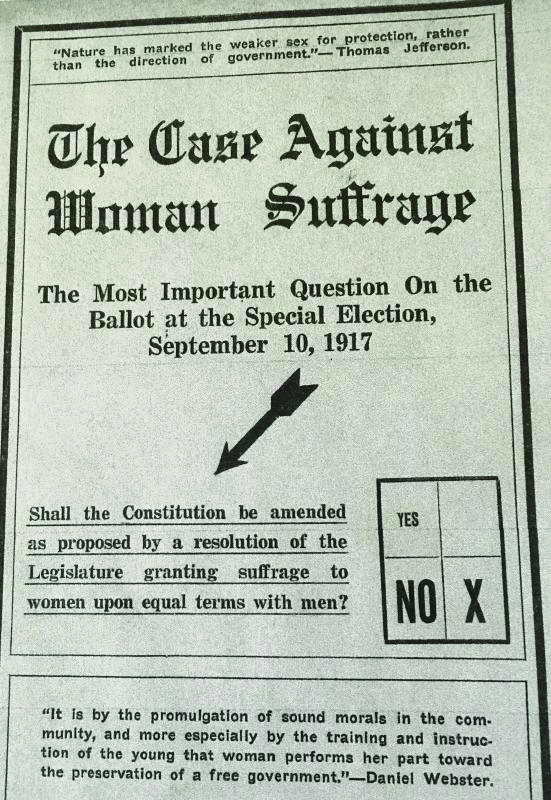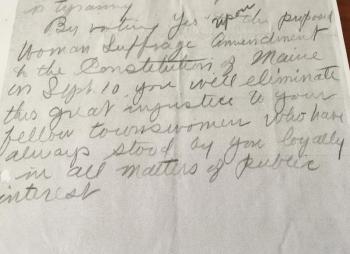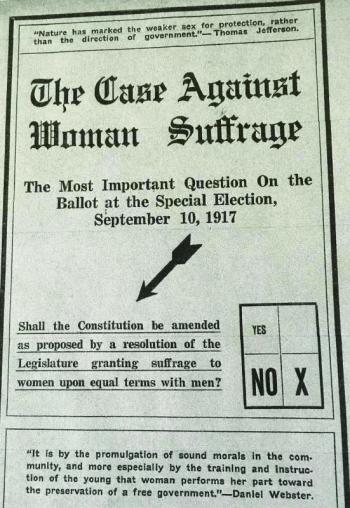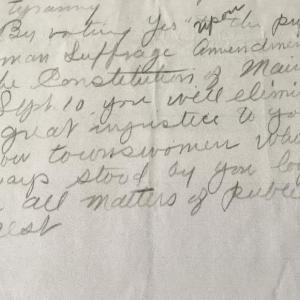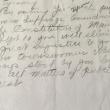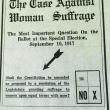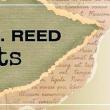1917 Appeal to the Voters of Boothbay Harbor
One hundred and fifty years have passed since 1874, the year of Elizabeth (Bess) Freeman Reed’s birth at 72 Oak Street, the current home of the Boothbay Region Historical Society.
Last winter, I began opening desk drawers and peeking in cubbies of the mahogany desk on the front wall of Room One at the Museum. I discovered extensive records of the Boothbay Harbor Monday Club from 1895 to 1998 and realized I had just opened a historical treasure chest filled with local primary sources! I have begun to dig into the records and am in the process of cataloging and scanning these treasured documents into an online database called CatalogIt. I am excited to share some of these intriguing archives from The Monday Club Collection with the Boothbay region community through a series of articles to appear periodically in the Boothbay Register.
One three-page document in Bess Reed’s cursive handwriting titled "To the Voters of Boothbay Harbor" stood out as worthy of sharing, especially in the days leading up to our historic election in November 2024. An adjacent multi-paged printed brochure titled The Case Against Woman Suffrage urged a NO vote to the Men of Maine. “The Most Important Question On the ballot at the Special Election, September 10, 1917 ---- Shall the Constitution be amended as proposed by a resolution of the Legislature granting suffrage to women upon equal terms with men?” was printed on the front cover of the brochure.
Bess Reed appealed to the men of Maine, developing her argument for a YES vote by quoting from the Town Report of 1917, noting that the women of Boothbay Harbor had paid more than $7250.00 in taxes without having any voice in town government. She questioned, “Do you consider this fair? In a democracy the government rests upon the just consent of the governed. Is this a government ‘of the people, by the people, and for the people’ when one half of the town have no voice in town affairs and when more than 240 women tax-payers here have no direct representation in town, state, and national elections although they are compelled to pay taxes to support the town, the state, and national government?” In her closing paragraph, Reed concluded, “By voting Yes upon the proposed Women Suffrage Amendment to the Constitution of Maine on September 10 you will eliminate this great injustice to your fellow townswomen who have always stood by you loyally in all matters of public interest.”
Whether Reed’s handwritten document was a speech, or a letter placed in the newspaper, it identifies Bess Reed, at age forty-three, as one of many suffragists who raised her voice advocating for a woman’s right to vote. Maine was one of thirty states holding ballot measures to adopt women’s suffrage. Unfortunately, Maine’s 1917 referendum question failed by a vote of 38,838 to 20,604. But Bess Reed and the other women of the Boothbay region continued to fight on until the 19th Amendment was ratified on August 18, 1920.

